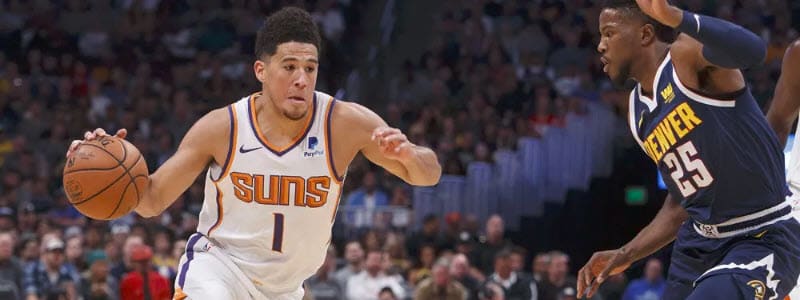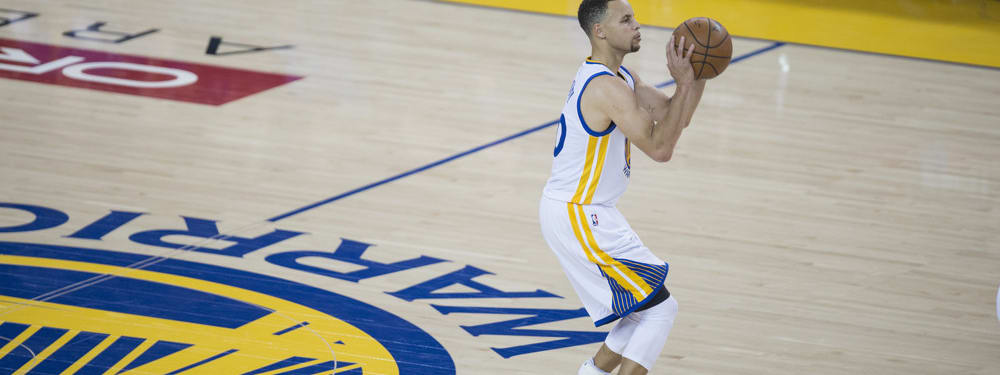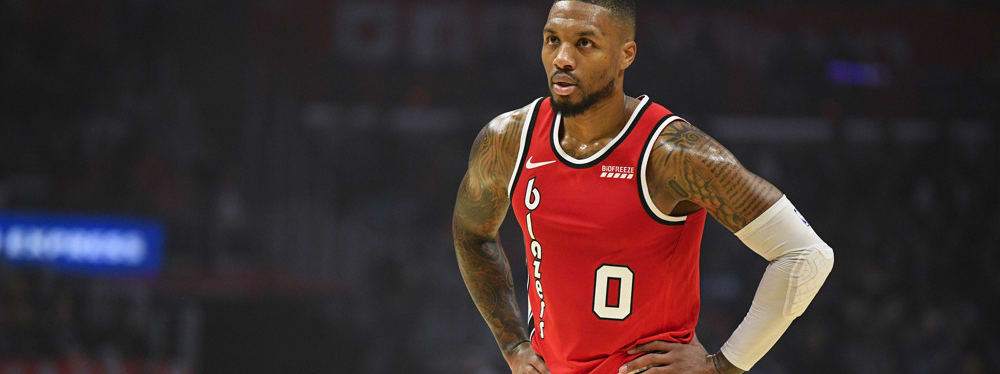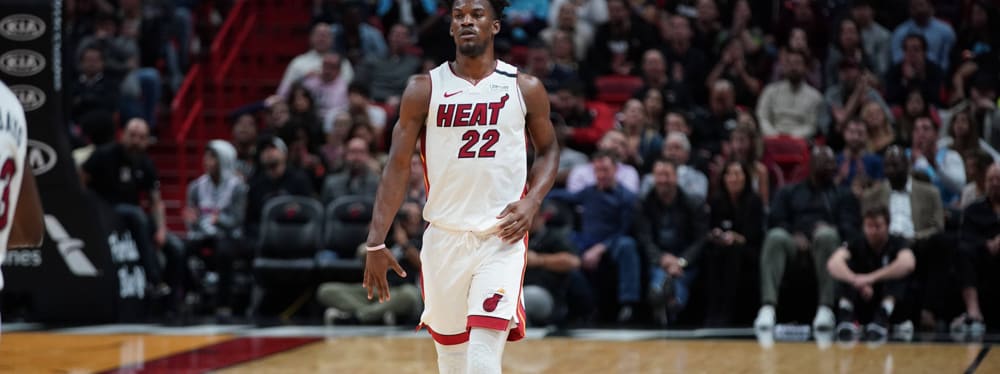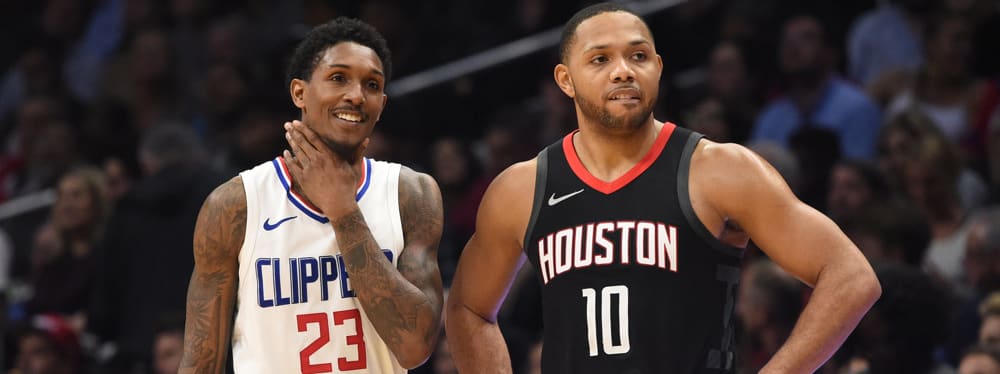Recent RotoWire Articles Featuring Michael Kidd-Gilchrist
See More
Kidd-Gilchrist has essentially watched his production dwindle with every passing season due to both injuries and his uncertain fit in the modern NBA. Now, with the Hornets likely shifting to a focus on the development of their young talent, Kidd-Gilchrist's fit in the franchise becomes even murkier heading into the 2019-20 season. Kidd-Gilchrist appeared in 64 games for the Hornets last year and averaged a career-low 18.4 minutes per game to go along with a career-worst average of 6.7 points. While he has established himself as a strong, versatile defender, his offensive game has been completely lacking even after seven NBA seasons. Now, after exercising his $13 million player option for the 2019-20 season, Kidd-Gilchrist is officially in a contract year. But the minutes he is going to see under coach James Borrego may continue to dwindle, especially with the emergence of young wing players like Miles Bridges and Dwayne Bacon to go along with the frontcourt addition of P.J. Washington with the 12th pick in this year's draft. Even when Kidd-Gilchrist is on the court, however, his production has hardly ever made him a reliable fantasy asset.
Though Kidd-Gilchrist has started in all but four of his 357 appearances with the Hornets, he remains a project offensively. Last year, he posted 9.2 points per game for the second straight season, though managed to set a career-high 50.4 field-goal percentage (aside from the 2015-16 campaign, where he played seven games). While he’s rightly touted as a great defender, it often doesn't translate into stats, as he averaged just a combined 1.1 steals/blocks in 2017-18. His rebounding also took a dip last year with a career-low 4.1 boards per game. However, that can probably be chalked up to the presence of Dwight Howard, who will not be with the team for the upcoming campaign. History would suggest Kidd-Gilchrist will continue starting for Charlotte, though the hiring of new coach James Borrego could be a sign of a rotational shake-up for a team that’s had minimal success recently. Regardless, there’s little to suggest the Kentucky product is due for a breakout year.
Kidd-Gilchrist has forged a reputation as one of the best and most versatile defenders in the league. Most of his value comes on that side of the ball, but he added 7.0 rebounds, 1.0 steal and 1.0 block per game last season while averaging 9.2 points on nearly 48 percent shooting. Most importantly, Kidd-Gilchrist appeared in 81 games after missing 122 games over his previous four seasons, so a near-full campaign was a breath of fresh air. While Kidd-Gilchrist's complete lack of a perimeter game is a major hindrance, -- nine three-point attempts last season -- he doens't force shots and maintains respectable efficiency, with most of his looks concentrated near the basket. His defense alone should keep him on the floor for nearly 30.0 minutes per game, and if he improves even marginally on the offensive end, he becomes a bit more attractive as a Fantasy commodity.
Injuries have already come to define Kidd-Gilchrist's young career, as he's missed 122 games over the past three seasons. A torn labrum limited Kidd-Gilchrist to just seven games in 2015-16, cutting short what many believed could have been a breakout year for the former No. 2 overall pick. In those seven games, Kidd-Gilchrist averaged 12.7 points, 6.4 rebounds and 1.3 assists while shooting 54.1 percent from the field, up from his career 46.7 percent mark. While the sample size was obviously small, Kidd-Gilchrist showcased expanded confidence as a shooter, knocking down as many three-pointers (three) as he'd hit in his previous 195 games combined. Kidd-Gilchrist's jumper remains borderline offensive in appearance, but he's steadily improved as a mid-to-long-range shooter since entering the league as a virtual non-factor outside the restricted area. While he'll likely never be a true marksman from deep, the simple threat of shooting the three ball at a reasonable percentage should be enough to help expand his overall offensive game. Kidd-Gilchrist is expected to step back into the starting small forward role in which he began last season, which will push Nicolas Batum over to shooting guard and give the Hornets one of the NBA's better defensive wing combinations. Batum projects as the better scorer of the two, while Kidd-Gilchrist should post strong rebounding and field-goal percentage numbers. He won't offer much in terms of assists, though, and his steal rate (1.0% in 2014-15) is substantially lower than his smothering defensive presence would suggest.
In his third season, Kidd-Gilchrist averaged 10.9 points, 7.6 rebounds, 1.4 assists, 0.5 steals, and 0.7 blocks in 29 minutes per game during 55 games. He shot 47 percent from the field and 70 percent from the free-throw line, going the whole year without attempting a single three-pointer. Though Kidd-Gilchrist set a career-low in games played, he set career-highs in points, rebounds, and minutes per game and earned a four-year, $52 million extension this offseason. Already among the top defensive players in the NBA, his versatility on that end allows him to matchup with multiple positions. Given how many new faces there are, it's unclear how the Hornets' rotation will look come October. Yet, continued offensive improvement could result in a breakout year for Kidd-Gilchrist, who turns 22 in September.
Like Bismack Biyombo, but with more on the line, the former No. 2 overall pick is facing somewhat of a do-or-die year as the Hornets have the capability to exercise his option next offseason. However, depending on who you ask, the second-year forward hasn't completely been a bust. According to ESPN's real plus/minus, Michael Kidd-Gilchrist ranked in a tie for 6th place (+2.06) among small forwards on defense. Believe it or not, that was higher than noted defensive stalwarts Kawhi Leonard, Luol Deng, and LeBron James, but MKG has obviously struggled on offense, some of which was expected because of his completely re-tooled jump shot. According to that same statistic, MKG ranked 39th on offense (-0.77) for a total real plus/minus of 1.29 — 19th among all small forwards. He has the athleticism to make it in this league, and he also shot well at the rim (56 percent) last season, but until he starts making jumpers consistently, he's nothing more than a role player. By all accounts, he's a jump shot away from being one of the better all-around small forwards in the league. Fantasy-wise, he's still a wait-and-see option due to his limited game on offense.
It's hard not to have some empathy towards Kidd-Gilchrist. He was drafted No. 2 overall, even though he can't shoot, and may not ever be able to shoot (more on this later). He was also drafted by perhaps the most depressing franchise in the league and was asked to step right in and improve the team. And he is also, by all accounts, a great guy and an extremely hard worker. Basically, by no fault of his own, he was put into a situation where he has almost no chance of being considered a good draft pick. There were plenty of rookies last year who were great to own, but MKG simply wasn't one of them. In his rookie campaign, Kidd-Gilchrist made 63 percent of his shots at the rim and 31 percent of his long two-point field goals (16 feet to the three-point line). He was terrible from everywhere else. From three-to-10 feet, he made 28 percent; from 10-to-16 feet, he converted 14 percent; and he hit on 22 percent of his three-point attempts. Overall, he was a 27 percent jump shooter during his rookie season. By comparison, Rudy Gay, who had one of the worst shooting seasons of his career last year, hit 36 percent of his jump shots, and Kevin Durant, who might be the best jump shooter in the league, hit 44 percent of his jumpers. Shooting is obviously not everything, but it's a pretty big thing. That isn't to say he'll kill your field-goal percentage, because he won't, he knows he's not a good shooter. But it does mean that it's hard to expect much more than the 9.0 points per game he averaged last year primarily on dunks and layups. Kidd-Gilchrist's hustle stats averaged out over 36 minutes look decent enough - 8.1 rebounds, 1.0 steal, and 1.2 blocks per game - but he only played 26 minutes per game last season. There's a little upside here for defensive stats with increased playing time, but that's certainly not guaranteed.
The No. 2 overall pick for the Bobcats in the 2012 NBA Draft should get plenty of opportunities to be one of the key contributors for Charlotte right out of the gate. Billed as an extremely hard worker, Kidd-Gilchrist will add fantasy value by his hunger on the glass and his ability to score in transition. The case could be made that he has the most fantasy upside of any rookie small forward. Nobody on the Bobcats roster has earned any status as a go-to option on offense, but that might not be MKG’s game right out of the gate. His jump shot is a bit unorthodox, but players like Shawn Marion have been able to thrive in the NBA on hustle and athleticism. There is time for his jumper to come a bit later. Ben Gordon, Gerald Henderson and Kemba Walker might not be good enough to discourage the rookie from trying to take over at points, and his ability to get to the line will also make him a viable scoring option in tight games. In keeper leagues, he has significantly more value, but he should be drafted in the middle-to-late rounds in almost all formats for the 2012-13 season.
